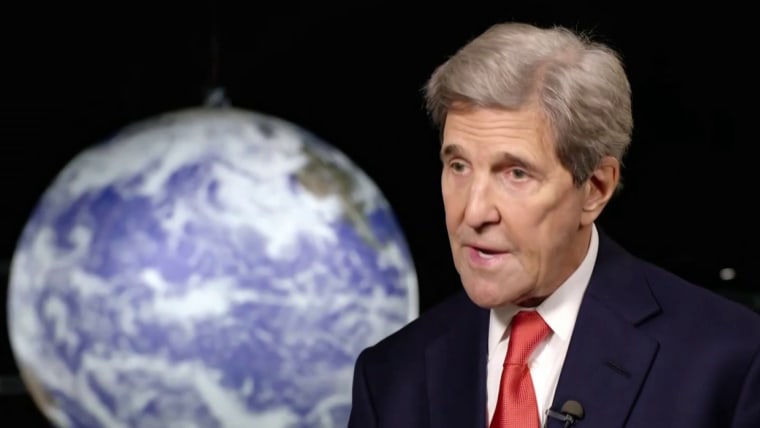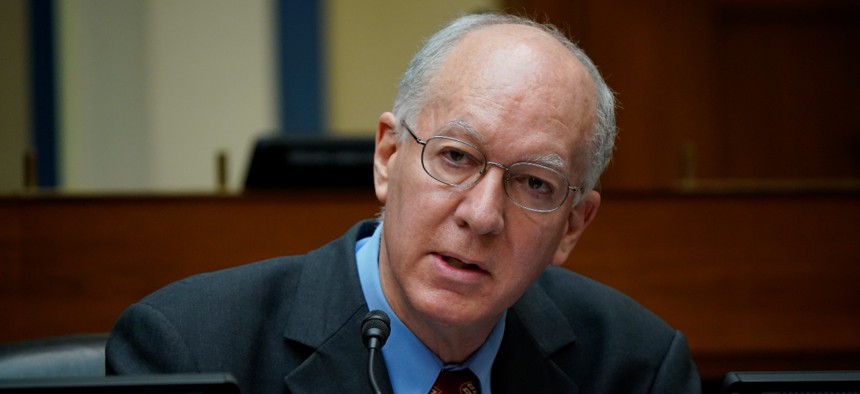How the Republican Party created its hostility towards science
The Trump administration’s systematic attacks on science
The Trump administration has systematically weakened scientific integrity within the federal government. It started early on by dismantling various White House science advisory committees and councils. Since then, Trump and his appointees have engaged in a persistent effort to cut scientists and science out of supporting important policy decisions. Entire programs at major science agencies like the Environmental Protection Agency (EPA) and the Department of Interior have been gutted or outright eliminated. A running list compiled by National Geographic details over 100 major ways in which the Trump administration has changed environmental policy and undermined science-based protections. These changes span areas like clean air and water regulations, climate change mitigation, wildlife and public lands conservation, and chemical safety reviews. Researchers have also documented many instances where government scientists have faced censorship, restrictions on attending conferences or speaking to the media, and outright retaliation for contradicting administration talking points. As a result, a significant number of experienced federal scientists have simply left government work out of frustration.
Overriding scientific consensus on global heating
One of the clearest examples is Trump’s dismissal of the overwhelming scientific consensus on human-caused global climate change. When the Fourth National Climate Assessment issued a dire warning about the impacts already locked in from past greenhouse gas emissions, Trump claimed “I don’t believe it.” His administration has systematically rolled back domestic climate policies and withdrawn the US from international agreements to curb emissions. Trump nominated numerous energy industry lobbyists and climate change denialists to key roles shaping environmental policy.

Scientists overwhelmingly affiliate with Democrats
Surveys consistently show that scientists have largely liberal political values and overwhelmingly affiliate with and donate to the Democratic Party. For instance, a 2009 Pew Research Center study of members of the prestigious American Association for the Advancement of Science (AAAS) found that only 6% identify as Republicans. Over half described their own views as liberal and 55% identified as Democrats. When scientists do make political donations, they go overwhelmingly to Democrats according to data analyzed by FiveThirtyEight. This partisan split is likely due to scientists’ evidence-based approach to policy issues that often aligns them against Republicans’ stances on topics like evolution, reproductive rights, gun policy and climate change.
The root cause: Republican hostility to science
However, the Republican Party’s hostility towards science long predates the Trump era. Chris Mooney’s 2005 book “The Republican War on Science” documents how conservatives over the prior decades had built an infrastructure of think tanks and front groups designed to discredit the scientific evidence on politically inconvenient issues. Major fossil fuel companies allied with powerful Republican politicians like Senator Jim Inhofe to aggressively promote climate misinformation. Meanwhile, the religious right gained influence opposing scientific topics like evolution and stem cell research. By framing such issues as matters of faith versus secularism, conservatives successfully spun science into yet another front in the emerging culture wars.
Partisan polarization extends to pandemic response
Nowhere has the real-world consequences of partisan science denialism been clearer than in responses to the COVID-19 pandemic. Surveys found that partisanship was consistently the strongest predictor of how seriously Americans took public health guidance. While Democrats worried primarily about health impacts, Republicans focused more on economic repercussions due to repeated messaging from Trump downplaying the risks. A March 2020 study by the Public Religion Research Institute found that 75% of Democracts trusted the CDC for pandemic information versus just 35% of Republicans. The politicized skepticism encouraged by conservative media helped turn basic mitigation steps like mask-wearing into another front in America’s raging culture wars. As a result, the US fared dramatically worse than other wealthy nations in terms of lives and economic damage.
Republican leadership cultivates anti-science base
To understand how GOP opposition to science evolved, one must examine the feedback loops between conservative elites and their base. During the 1980s and 90s, Republican leaders seeking to cement a permanent majority responded to evangelical concerns over issues like abortion and evolution. Meanwhile think tanks crafted narratives labeling conservationists, scientists, and regulators as radical threats. Soon anti-elitism blurred into generalized anti-intellectualism. Cynical Republican politicians realized tapping voters’ suspicions of so-called “ivory tower experts” aided their agenda of deregulation and tax cuts for the wealthy. Promoting the view that scientists comprised just another special interest allowed rejection of science that conflicted with conservative dogma. The resulting feedback loops trained conservative rank-and-file to distrust peer-reviewed evidence on everything from clean energy to healthcare policy. With anti-science attitudes solidified as tribal identity markers, Republican officials could ignore scientific consensus with few electoral consequences.
Attacks on “political scientists” as mantra
Some Trump officials like Landon Davis made the GOP’s stance explicit by framing science itself as a “Democrat thing.” Scientists were dismissed as partisan “political scientists” regardless of evidence presented. Similarly, a pro-industry op-ed published by 500 members of the Center for Biological Diversity warned scientists against engaging in “advocacy” and told them to avoid any work with “normative or prescriptive conclusions” lest it be declared “political.” Such rhetoric implied even mere facts could stray into opinion if contradicting pro-business orthodoxy.
Scientists respond by engaging in democracy
As conservative assaults on science intensified, leading scientific societies realized they must more vigorously engage the public and policy spheres to defend factual inquiry itself. Groups like the Union of Concerned Scientists expanded public interest work including educational campaigns, litigation, and grassroots advocacy against political interference and attacks on scientists. Research also showed how insular views of science as strictly non-political damaged credibility with the very public whose support funds scientific knowledge. A silent research community risks being seen as compliant despite politically inconvenient results. As one scientist summed up, “facts have political consequences and that cannot be wished away.” By speaking up for facts and standing up for targeted colleagues, the scientific community works to curb anti-science influences and preserve truth itself.
Conclusion: Defending science from anti-intellectual forces
The decades long campaign by Republican leaders and fossil fuel allies to cultivate public skepticism of scientific expertise poses profound threats to evidence-based policymaking. From climate denialism to the politicization of the COVID response, anti-science feedback loops have had deadly real-world consequences that span from environment to public health. In order to curb the political assaults which imperil both knowledge and society itself, scientific organizations recognize they must vigorously engage and advocate both facts and fact-finding to the public it serves. Only by countering systematic anti-intellectualism can science fulfill its mission of understanding reality and bettering human lives.
